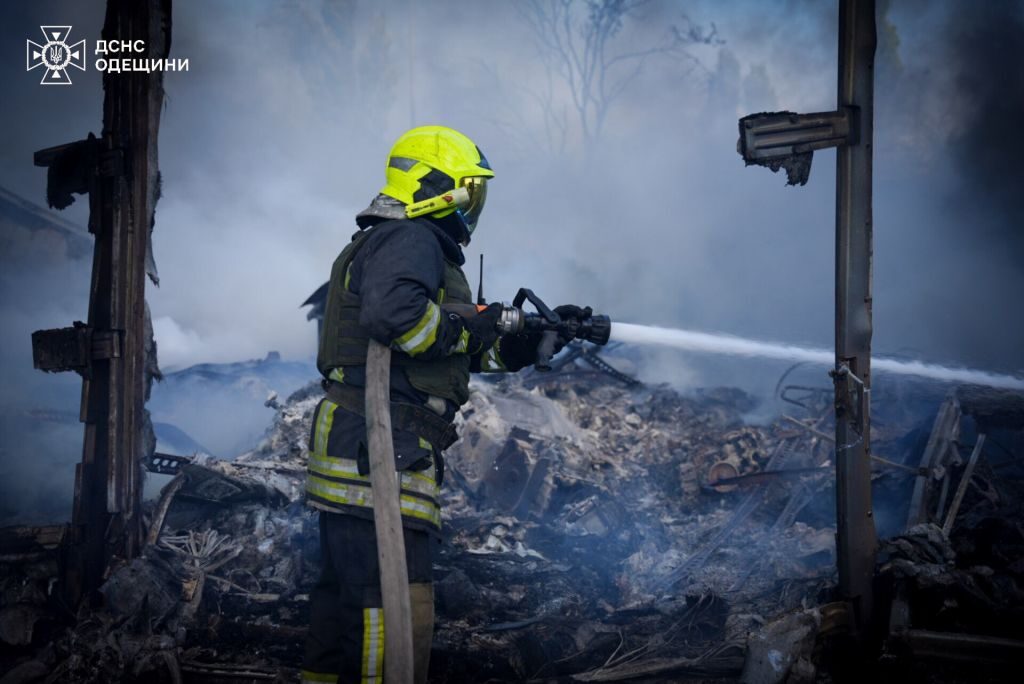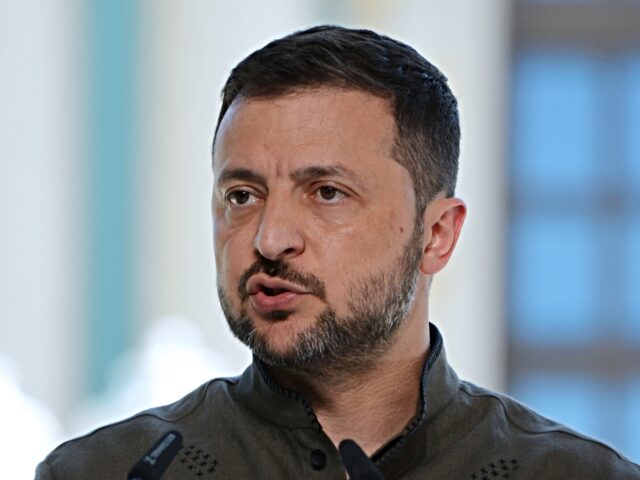Ukrainian President Volodymyr Zelensky offered an alarming update on nationwide Russian bombings of his country on Monday, describing blackouts “everywhere” and significant harm to Ukraine’s power grid.
The Russian military launched a sweeping drone and missile campaign on Monday in which it reportedly focused on bombing energy infrastructure. Some Russian media reported that the strikes impacted at least nine regions of Ukraine – including the capital, Kyiv – while Ukrainian state media listed at least “15 regions” suffering various negative effects from the “large-scale Russian attack” out of the nation’s 27.
The attack is the largest Russian operation within Ukraine since Zelensky authorized a counter-invasion of Russia on August 6, initially targeting the border region of Kursk and expanding into Belgorod and threatening the Bryansk region. The counter-invasion appeared to take Russian strongman Vladimir Putin by surprise, allowing Ukrainian forces to capture a significant slice of uncontested Russian territory on the Ukrainian border. Zelensky later explained in public remarks that the objective of the counter-invasion was allegedly to create a “buffer zone” to make it more difficult for Russia to transfer troops and military assets into Ukraine.
The major strikes on Ukraine’s power grid also follow mounting concerns, in the aftermath of the Kursk invasion, that nuclear power plants in both countries are under threat, potentially creating the ingredients for a major nuclear disaster. The head of the International Atomic Energy Agency (IAEA), Rafael Grossi, is expected to visit the Kursk Nuclear Power Plant in the near future. The Zaporizhzhia Nuclear Power Plant, in Ukraine but under Russian control, has also been at risk of a major attack on critical structures since the Russian full-scale invasion began in February 2022.
The Associated Press reported on Monday that the Russian attack began around midnight local time that day and had killed at least three people in the ensuing hours. Ukrinform reported on Monday that the strikes had injured three people, “including a five-month-old baby” so far, in Kyiv.
The strikes on power grid infrastructure had forced Ukrainian officials to redirect electricity, cutting power in certain sectors to ensure that it could keep producing for vital services. In the nation’s capital, Kyiv authorities said that both electricity and water supply services had suffered, leaving some with no access to water.
Zelensky addressed the country later on Monday, confirming that the Russian attack featured “more than 100 missiles of various types and about 100 Shahed UAVs.” Shaheds are a kind of suicide drone originating in Iran.
“It was one of the heaviest strikes – a combined one. More than a hundred missiles of various types and about a hundred ‘Shahed’ drones,” the president said, according to the Ukrainian state outlet Ukrinform. “And like most previous Russian strikes, this one was just as vile, targeting critical civilian infrastructure. Most of our regions – from the Kharkiv region and Kyiv to Odesa and our western regions.”
“There is a lot of damage in the energy sector. But wherever there is a power outage, restoration is already underway. Our repair crews will work around the clock,” Zelensky promised. “We will restore electricity.”
The president used his address also to demand that Western powers, particularly the United States, help Ukraine shoot down incoming Russian drones and missiles, comparing his request to how neighbors have supported Israel by helping shoot down projectiles shot by terrorist groups such as Hezbollah and their patrons in Iran.
“We must finally come to a collective shooting down of Russian missiles and drones,” Zelensky demanded. “If such unity has worked so obviously well in the Middle East, it should work in Europe as well. Life has the same value everywhere.”
The Russian news agency Tass additionally quoted Zelensky as stating in a comment on the messaging service Telegram that Ukraine was struggling with power blackouts “everywhere” due to the attack.
“There has been heavy damage to the energy sector. Everywhere where there are blackouts, restoration work is underway,” Tass quoted Zelensky as saying.
Ukrainian Energy Minister German Galushchenko, in a separate statement, explained that the significant damage will require the country’s electricity authorities to implement “a regime of emergency power cuts.”
In what has been a rare occasion in the three-year-old Russian invasion, Russian and Ukrainian government sources largely described the attack similarly. The Russian Defense Ministry confirmed a “massive high-precision attack” on “Ukrainian energy facilities,” according to the Russian state propaganda outlet RT, on Monday. The Defense Ministry claimed the attack a tremendous success, missing none of the intended targets.

Ukrainian emergency service workers try to extinguish the fire that broke out after the Russian missile attack on Odessa, Ukraine on August 26, 2024. As a result of falling rocket debris, private houses and a large number of motor vehicles were damaged. (Photo by Ukrainian Emergency Service/Anadolu via Getty)
The attack appears to be a response to the Kursk incursion, which remains ongoing though Russian forces appear to have mostly prevented Ukraine from expanding the territory it controls much beyond what was initially taken in early August. Ukrainian authorities refused to discuss the events in Russia for some time; Zelensky himself only hinted obliquely at a need for Russia to experience war first-hand in response to the invasion.
Later in August, Zelensky said in remarks to the public that the military’s “primary task in defensive operations overall: to destroy as much Russian war potential as possible and conduct maximum counteroffensive actions.”
“This includes creating a buffer zone on the aggressor’s territory – our operation in the Kursk region,” he said.
The Kursk incursion resulted in the evacuation of over 120,000 Russians from the region; Governor Alexei Smirnov told Putin in a meeting on August 12 that he had implemented an evacuation plan that would ultimately affect at least 180,000 people.
Follow Frances Martel on Facebook and Twitter.

COMMENTS
Please let us know if you're having issues with commenting.